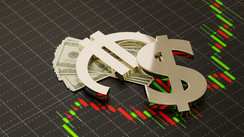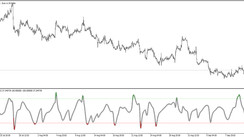Deceleration of New Zealand Inflation Affecting Dollar Value
The value of the New Zealand dollar recently slid due to the slower growth of inflation during the final quarter. In the course of the European session, NZD/USD stood at 0.6114, a decrease of 0.25%. The New Zealand dollar saw a fall of 0.40% following the announcement of the reduction in inflation expectations, although it has since recovered some of these losses.
Contraction of New Zealand Inflation Expectations to 2.5%
Inflation expectations, a crucial factor affecting inflation trends, witnessed a decline to 2.5% in Q4, the lowest in more than two years, down from 2.76% in the previous quarter. These expectations of inflation have the potential to drive up actual inflation if they become deeply ingrained.
This information might provide some morale boost to the Reserve Bank of New Zealand (RBNZ), which has declared combatting inflation as its principal aim. With the current inflation rate being 4.7%, significantly above the target range of 1-3%, the RBNZ has expressed apprehension over the persistence of inflation pressures and hinted at a possible increase in interest rates.
Changing Market Predictions and RBNZ Reactions
Market speculation during the second half of the year leaned towards a rate cut, but with comments from the RBNZ and an unexpected positive employment report last week, these predictions have been doused. The likely prospects for a rate increase is now pegged at 45% by the market in the RBNZ's meeting on 28th February, and 80% likely at their May meeting. The decline in inflation expectations indicated in the latest report could lower pressures on RBNZ to raise rates, perhaps leading to an extension of the prevailing rate pause.
Observed Trends Within the US
In the US, the Federal Reserve is also contesting market forecasts for a cut in rates. With a reduction in March rendered unlikely, Richmond Fed President Thomas Barkin expressed worries about dipping rates prematurely, postulating that it could lead to a sharp surge in inflation.





